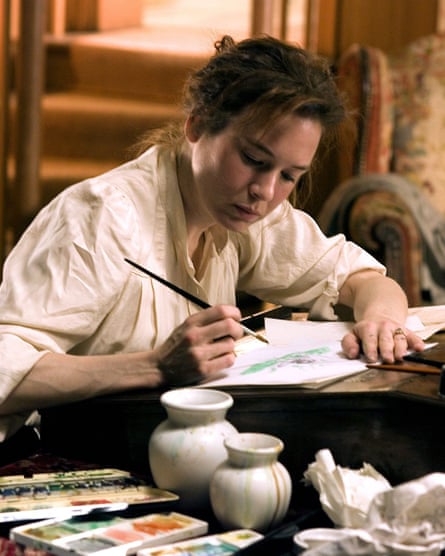Think of Beatrix Potter and you will probably call to mind her tales of Peter Rabbit, Jemima Puddle-Duck and Mrs Tiggy-Winkle. These popular stories, with their English country garden settings and precise illustrations, have been stalwarts of British children’s bookshelves over the past century. Yet the stories may not be as British as most of us assume.
Dr Emily Zobel Marshall, in a new essay for The Conversation, has called for wider acknowledgment of the debt Potter owed to the Brer Rabbit stories told by enslaved Africans working on American plantations.
The Brer Rabbit tales, about a cunning rabbit who lives in a briar patch and outwits larger animals, can be traced back to pre-colonial Africa, Zobel Marshall, a reader in postcolonial literature at Leeds Beckett university, explained. The tales were then shared among enslaved people in American plantations, before being adapted for white audiences in the late 19th century by the American journalist and folklorist Joel Chandler Harris.
The Uncle Remus stories, as they became known, thanks to the name of Harris’s fictional African American narrator, were familiar to Potter. Linda Lear’s 2008 biography of Potter, A Life in Nature, notes that while her “first audience was British”, her work was strongly influenced by Harris – “whose Brer Rabbit stories she had loved as a child”.
Copies of Harris’s Brer Rabbit folktale collections, bearing her father’s bookplate, were found at Potter’s home in the Lake District after she died in 1943.
“These stories had not been published in the UK when Beatrix Potter was a child. It is therefore likely that her early contact with the Brer Rabbit tales (in comparison with the rest of the British public) was a result of her family roots in the cotton industry,” Zobel Marshall writes.
Potter’s grandfather, Edmund Potter, was a Manchester cotton mill owner whose wealth was inherited by Beatrix’s father, Rupert, a lawyer and photographer. Rupert married a wealthy heiress, Helen Leech, whose family were also cotton mill owners. By the early 19th century, the raw cotton used in these mills was sourced from the Americas, and Manchester’s economic success was deeply connected to the enslavement of African people.
“I was amazed to realise how little comment there has been over the years about the many similarities between Potter’s tales and the Africa-originated Brer Rabbit folktales”, Zobel Marshall said.
In fact, as mentioned in Lear’s biography, Potter herself acknowledged that her story The Tale of Mr Tod, the sequel to the Tale of Peter Rabbit, contained “imitation of Uncle Remus” in a letter to her publisher.
“Having analysed the plotting, language and characters in her tales, it’s clear that Potter was more than just inspired by these folktales,” Zobel Marshall said.
Plot similarities between the two sets of stories abound, Zobel Marshall has noted. “In Some Lady’s Garden (1883), for example, Brer Rabbit tricks Miss Janey into letting him into her father’s vegetable garden to steal English peas, sparrow grass (asparagus) and goobers (peanuts) by pretending to be a friend of her father, Mr Man, from the big white (master’s) house”, the academic said. “This plot is the main storyline in most of Potter’s tales and is directly linked to the need for enslaved people to steal food from their masters to survive.”
Before Zobel Marshall’s essay and book, American Trickster: Trauma, Tradition and Brer Rabbit, there had only been two detailed pieces of research connecting Potter’s tales with Harris’s earlier folktales. One was in children’s author John Goldthwaite’s 1996 book, The Natural History of Make-Believe, and the other was literary critic Peter Hollindale’s (unpublished) lecture, Uncle Remus and Peter Rabbit, at the Beatrix Potter Society’s 2003 annual general meeting.
after newsletter promotion

Potter herself “never publicly admitted the source of any inspiration for her drawings, plotlines or protagonists”, Zobel Marshall says. Hollindale argued in his lecture that this may have been because she “misunderstood her own talent and, to the end of her life, was afraid of being caught out as a cheat”.
Zobel Marshall points out that it is not necessarily wrong for Potter to have been inspired by the Brer Rabbit stories. “By their nature, stories constantly change to suit the needs of their audiences, and this is particularly the case with oral storytelling”, she writes. In fact, another well-known British children’s author, Enid Blyton, also wrote versions of the Brer Rabbit stories, but unlike Potter, Blyton acknowledged her sources.
“Potter’s actions in shielding the reading public from her sources have fed into a damaging and reoccurring appropriation of Black cultural forms that continues today,” Zobel Marshall said.
“The Beatrix Potter and Peter Rabbit brands are highly lucrative, yet I have found no references to the Black American sources of these tales in any of the Beatrix Potter museums and experiences in the UK and US, which attract hundreds of thousands of visitors yearly. There is similarly no mention of these sources in any of the films of her tales, or in the 2006 Hollywood biopic Miss Potter,” she added.
While Harris “moved the stories out of the reach of many African Americans and created a damaging minstrel stereotype in Uncle Remus”, he did at least credit enslaved Black Americans as the original authors.
“Brer Rabbit needs to be firmly reasserted into our understanding and appreciation of Beatrix Potter’s tales,” Zobel Marshall said. “For far too long, they have been stealing from his Briar Patch.”
"story" - Google News
May 19, 2023 at 07:18PM
https://ift.tt/O0z7L3V
Beatrix Potter’s Peter Rabbit story originated in African folktales, expert argues - The Guardian
"story" - Google News
https://ift.tt/hoPbH7C
https://ift.tt/MAeg8DS
Bagikan Berita Ini














0 Response to "Beatrix Potter’s Peter Rabbit story originated in African folktales, expert argues - The Guardian"
Post a Comment